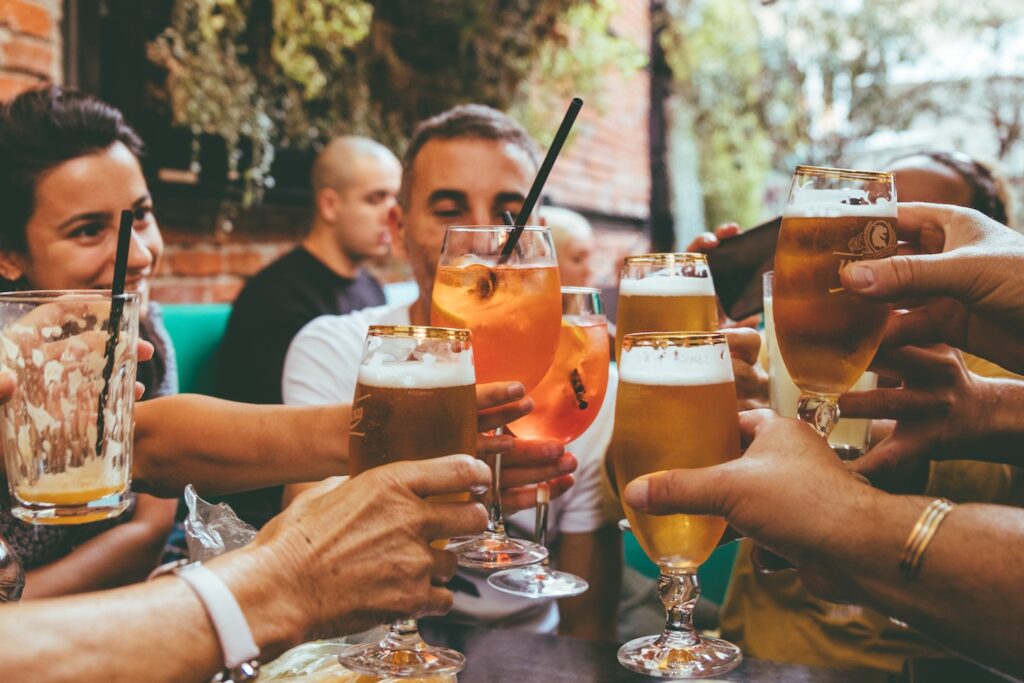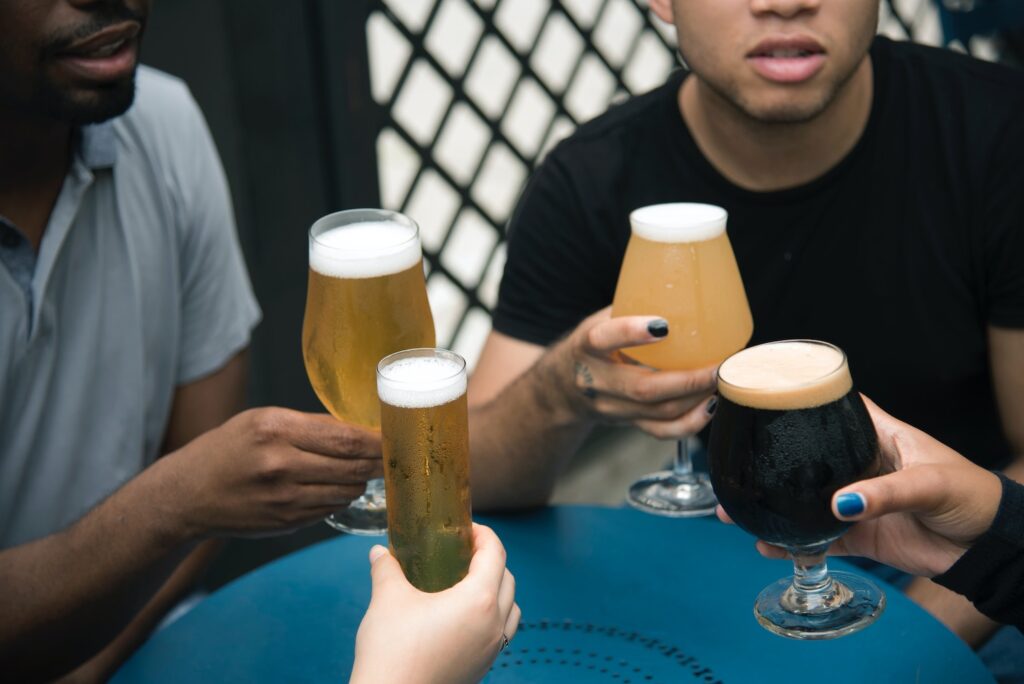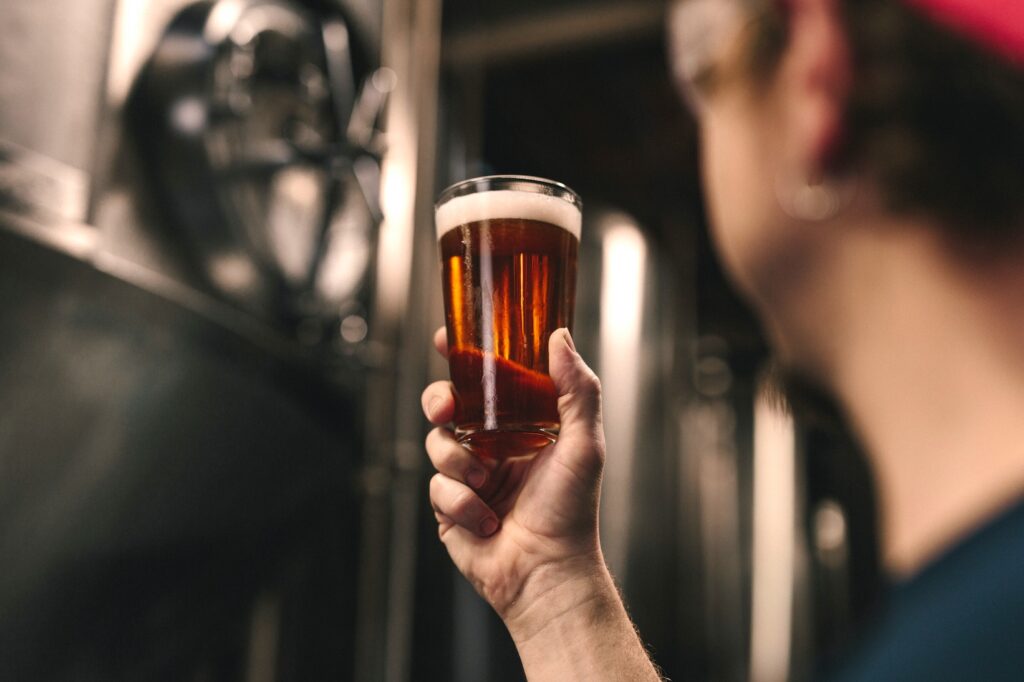
Drinking For Fun, And Drinking To Excess: A Primer

Drinking is an integral part of our culture and has been for thousands of years. Every attempt to crush it has only made it come back stronger or go underground.
Therefore, we need to come to terms and make peace with it. But how do we do that in our personal lives? The pressure to drink is everywhere, particularly for those who spend a lot of time socializing and networking. Getting sozzled with alcohol is almost an approved form of etiquette.
Fortunately, this post is here to help. We take a look at what it means to drink for fun and the difference between that and drinking to excess. Then, we wrap up with some of the ways you can get help if you think you might have a problem.
Drinking For Fun
Drinking for fun usually means staying under the recommended upper limit guidelines of 14 units per week or the equivalent of 1 to 2 drinks per day. Going above that on special occasions is okay, but you don’t want to make a habit of it.
Drinking for fun also usually involves appreciating the taste of the drink more. The goal should be more than to feel drunk. It’s more of a social lubricant, as described above, helping things along without preventing you from interacting with others normally.
It should also only have a minimal impact on your health and well-being. You should feel refreshed in the morning and not wake up with a pounding headache. While a small quantity of alcohol still increases the risk of some chronic diseases, like stomach cancer, keeping intake low minimizes this risk to acceptable levels.
Drinking To Excess
Drinking to excess is a different animal. Here, you regularly exceed the recommended guidelines.
Granted, you might be able to get away with this if you are young or particularly good at processing alcohol. But if you notice it is preventing you from living life as normal, it could be going too far.
It is also taking it too far if it involves getting in trouble with the law. Lawyers like Sitkoff & Hanrahan, LLP regularly have to defend those caught drinking and driving, or on felony charges because of other alcohol-related crimes they allegedly committed.
Drinking to excess usually occurs when you start losing control of what you are doing. Once you get past a certain threshold, it becomes more challenging to moderate your behavior and it can get out of control.
Long-term, it can take its toll on your health and relationships. It could also hamper work performance.
Wrapping Up
We don’t want to be killjoys though. Alcohol has varying effects on people, based on genetics, whether you consume it with a meal and your prevailing mental health. It can also vary in impact depending on the tendency toward developing addictions. Some people are more prone than others.
Taking personal responsibility is essential. However, you can also get help and professional advice from someone you trust. Like Aristotle said over 2,000 years ago: everything in moderation.









